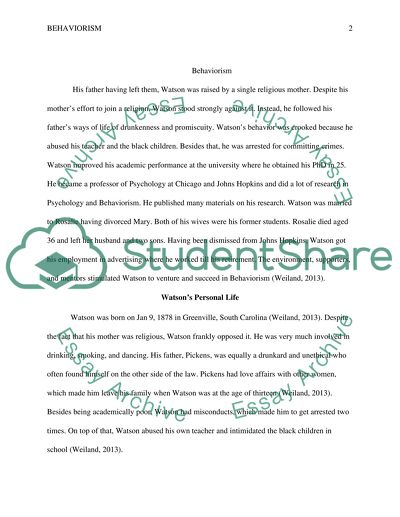Cite this document
(“John Watson: How his personal life helped shape his theory of Essay”, n.d.)
John Watson: How his personal life helped shape his theory of Essay. Retrieved from https://studentshare.org/psychology/1496158-john-watson-how-his-personal-life-helped-shape-his
John Watson: How his personal life helped shape his theory of Essay. Retrieved from https://studentshare.org/psychology/1496158-john-watson-how-his-personal-life-helped-shape-his
(John Watson: How His Personal Life Helped Shape His Theory of Essay)
John Watson: How His Personal Life Helped Shape His Theory of Essay. https://studentshare.org/psychology/1496158-john-watson-how-his-personal-life-helped-shape-his.
John Watson: How His Personal Life Helped Shape His Theory of Essay. https://studentshare.org/psychology/1496158-john-watson-how-his-personal-life-helped-shape-his.
“John Watson: How His Personal Life Helped Shape His Theory of Essay”, n.d. https://studentshare.org/psychology/1496158-john-watson-how-his-personal-life-helped-shape-his.


